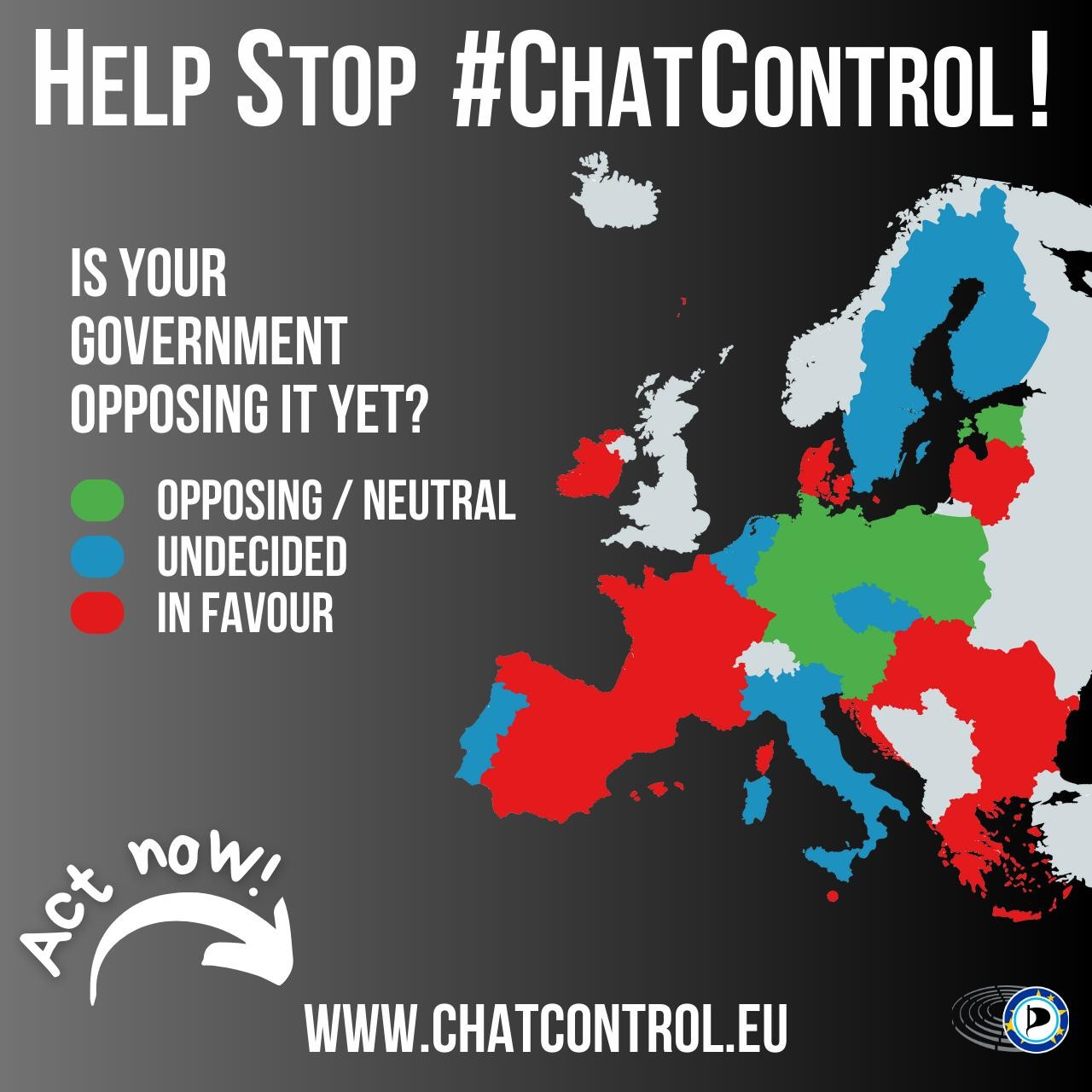Leak on latest #ChatControl attempt (in German): https://netzpolitik.org/2024/interne-dokumente-sperrminoritaet-gegen-chatkontrolle-wackelt/ +++ Only AUT, DEU, EST, LUX, POL, SVN were critical – no blocking minority! +++ BEL, CZE, FIN, ITA, NLD, PRT, SWE undecided +++ EU legal experts confirm violation of our fundamental rights +++ Only 5 days to next discussion +++
Help pressure our governments into defending our #privacy of correspondence and secure #encryption now: https://www.patrick-breyer.de/en/take-action-to-stop-chat-control-now/



Translation of parts from the German netzpolitik.org article:
Other states also reject the current proposal. Six states "stated that they could not agree to the proposal due to fundamental concerns.
[…]
The Legal Service of the EU member states supports the critics. Last year, the experts came to the conclusion that chat control is contrary to fundamental rights and will fail in court. These concerns have “still not been dispelled”. The lawyers also believe “that the proposal would not stand up to judicial review” - i.e. it is illegal.
[…] If either France or Italy - or two states from the Netherlands, Belgium and the Czech Republic - reject the new proposal, there will still be no majority in the Council.
[…] The Hungarian Council Presidency is sticking to its optimistic timetable. Hungary actually wanted to “further negotiate the proposal at a technical level”. That would be the Council working group on criminal prosecution. It met today, but did not discuss the chat control. Instead, the advisors for justice and home affairs are to negotiate the Hungarian proposal on Monday. If Hungary has its way, the Permanent Representatives will then decide on the Council’s position, followed by the Justice and Home Affairs Ministers on October 10. France and Sweden are “explicitly” in favor.